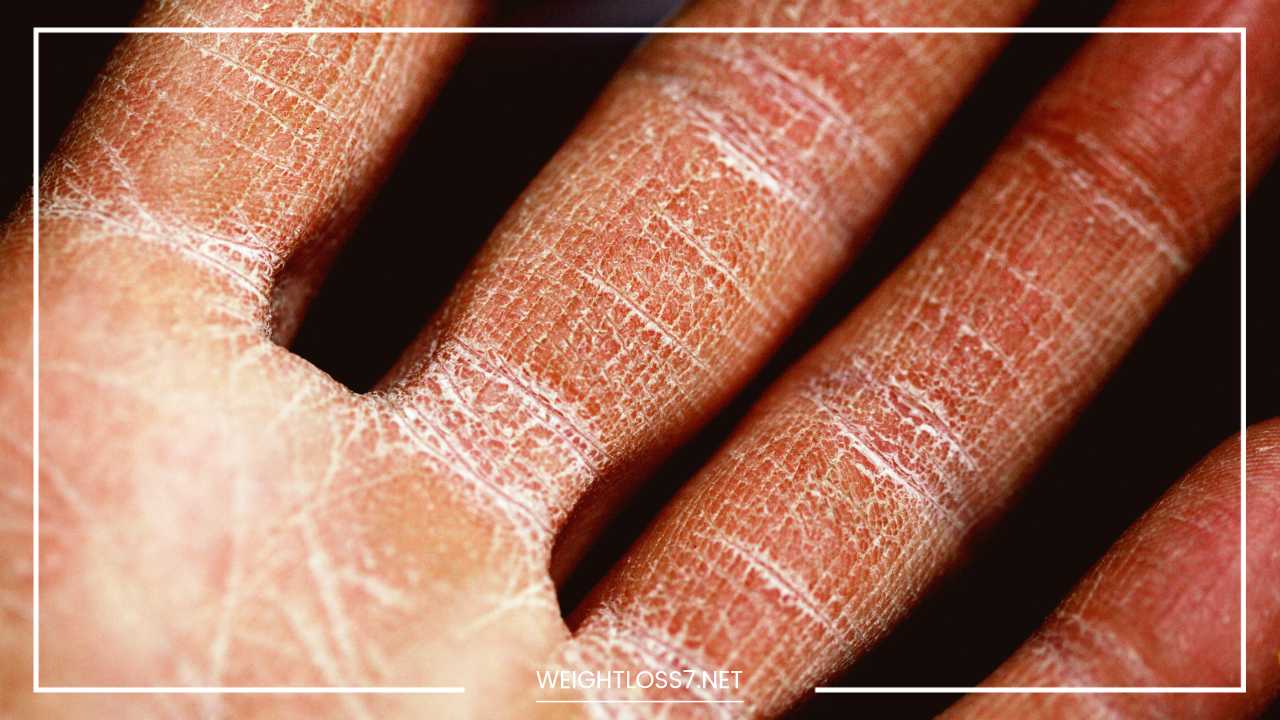Eczema Relief: Tips, Treatments & Support for Success

Eczema Relief
Living With Eczema: A Comprehensive Guide to Understanding and Thriving with This Common Skin Condition
Eczema. The word itself can conjure up a kaleidoscope of sensations: the relentless itch, the raw discomfort, the frustration of inflamed skin. Affecting millions of people worldwide, eczema, also known as atopic dermatitis, is a chronic inflammatory skin condition.
While there’s no cure, with proper understanding and proactive management, it’s absolutely possible to thrive, not just survive, even with eczema.
This comprehensive blog post delves deeper into the world of eczema, serving as your one-stop guide. We’ll explore the complex interplay of genetics and environmental factors that contribute to the condition.
We’ll unpack the different types of eczema, their distinct presentations, and the range of symptoms you might encounter.
Moving beyond diagnosis, we’ll equip you with effective management strategies. From incorporating a daily skincare routine to navigating medical treatments, we’ll cover various approaches to keeping your eczema under control.
We won’t shy away from acknowledging the emotional impact of eczema and offer tips for building a supportive network.
So, take a deep breath, and let’s dive in.
Understanding Eczema: A Web of Genetics and Environmental Triggers
The root cause of eczema is a complex story, woven from the threads of genetics and environmental factors. People with eczema often have a family history of allergies or atopic conditions like asthma or hay fever. This suggests a genetic predisposition to a weakened skin barrier function.
Healthy skin acts as our first line of defense, a shield protecting us from irritants, allergens, and harmful pathogens.
In eczema, this barrier is compromised. Imagine tiny cracks in a fortress wall. These cracks allow moisture to escape, leaving the skin dry and vulnerable.
At the same time, irritants and allergens from the environment can more easily penetrate the skin, triggering an inflammatory response. This response manifests as the redness, itchiness, and inflammation characteristic of eczema.
Environmental triggers like dust mites, pet dander, harsh soaps, and even stress can further exacerbate these symptoms. Identifying your specific triggers is crucial for effectively managing your eczema.
The Many Faces of Eczema: A Look at Different Types and Their Symptoms
Eczema doesn’t have a one-size-fits-all presentation. It manifests differently in various individuals, depending on factors like age and location on the body. Here’s a breakdown of some common types of eczema:
- Atopic Dermatitis: This is the most prevalent type, typically affecting infants and children. It often appears on the face, cheeks, hands, and feet, causing red, itchy patches that can weep fluid. In older children and adults, atopic dermatitis often affects the creases of the elbows and knees.
- Dyshidrotic Eczema: This type presents with small, intensely itchy blisters on the palms and sides of the fingers and toes. The blisters may appear in cycles and can be very uncomfortable.
- Hand Eczema: As the name suggests, this type primarily affects the hands. It can be caused by irritants or allergens encountered in everyday activities, such as cleaning products or certain professions (hairdressers, healthcare workers). Hand eczema leads to cracked, dry, and painful skin on the hands.
- Nummular Eczema: This type manifests as coin-shaped patches, often on the arms, legs, or torso. The patches can be itchy, red, and crusted.
Living With the Itch: A Deeper Look at Eczema Symptoms
The hallmark symptom of eczema is intense itchiness, often worse at night. This relentless itch can be incredibly disruptive to sleep and daily life.
The urge to scratch can be overwhelming, but scratching can further damage the skin and worsen symptoms. It creates a vicious cycle of itch and scratch that can be difficult to break.
Here’s a closer look at some other common symptoms of eczema:
- Dry, red, and scaly skin: This is a constant feature of eczema. The skin may appear rough and feel like sandpaper.
- Blisters or bumps: Depending on the type of eczema, you may experience small blisters or bumps on the affected skin.
- Thickened, leathery skin (in chronic cases): In long-standing eczema, the skin can become thickened and leathery due to repeated inflammation and scratching.
- Oozing or crusting: In some cases, the affected skin may ooze fluid or develop crusts.
- Swelling: The inflamed skin may also be swollen, particularly around the eyes (in atopic dermatitis) or on the hands (in hand eczema).
Beyond the Physical: The Emotional Impact of Eczema
Eczema isn’t just a physical condition; it can take a toll on your emotional well-being. The constant itch, the visible signs on your skin, and the limitations it can impose on your daily life can lead to feelings of frustration,
- Frustration and Anger: The constant itch and limitations caused by eczema can understandably lead to feelings of frustration and even anger.
- Anxiety and Social Embarrassment: The visible signs of eczema, like redness and inflammation, can sometimes cause social anxiety or embarrassment. This can lead to social withdrawal and isolation.
- Low Self-Esteem: Eczema can negatively impact self-esteem, especially for adolescents and young adults who are already self-conscious about their appearance.
- Depression: In some cases, the emotional burden of eczema can contribute to feelings of depression.
Building Your Support System: You’re Not Alone on This Journey
Remember, you are not alone in this journey with eczema. Millions of people worldwide grapple with this condition. Here are some ways to build a strong support system that can empower you to manage your eczema effectively:
- Talk to Your Doctor: Your doctor is your partner in managing your eczema. Discuss your concerns openly and honestly. Don’t hesitate to ask questions and express any anxieties you might have.
- Connect with Support Groups: There’s strength in numbers. Joining online forums or local support groups for people with eczema can connect you with others who understand your challenges. Sharing experiences and tips can be incredibly helpful.
- Lean on Loved Ones: Don’t isolate yourself. Talk to your family and friends about your eczema and how they can support you. Let them know how their understanding and compassion can make a difference.
- Consider Therapy: If you’re struggling with the emotional impact of eczema, consider seeking professional help from a therapist. They can equip you with coping mechanisms for managing stress, anxiety, and low self-esteem.
Taking Control: Effective Management Strategies for Eczema
While there’s no cure for eczema, there are various strategies you can adopt to effectively manage it and improve your quality of life. Here are some key approaches:
- Moisturizing: This is the cornerstone of eczema management. Regularly applying fragrance-free, hypoallergenic moisturizers helps strengthen the skin barrier, lock in moisture, and reduce dryness. Aim to moisturize several times a day, especially after showering or bathing.
- Identifying and Avoiding Triggers: As mentioned earlier, environmental triggers can significantly worsen eczema symptoms. Pay close attention to what triggers your flare-ups. Common culprits include dust mites (use mite-proof covers on mattresses and pillows), pet dander (frequent bathing of pets and regular cleaning can help), harsh soaps and detergents (opt for fragrance-free, gentle cleansers), certain fabrics (avoid wool and opt for soft, breathable cotton clothes), and even food allergies (consider allergy testing to identify potential food triggers).
Daily Skin Care Routine is Key
In addition to avoiding triggers, incorporating a gentle daily skincare routine is crucial for managing eczema. Here’s a basic outline:
- Lukewarm Baths or Showers: Avoid hot water as it can strip away natural oils from the skin. Limit bath time to 10-15 minutes and pat your skin dry instead of rubbing.
- Gentle Cleansers: Harsh soaps can irritate the skin. Opt for fragrance-free, gentle cleansers specifically formulated for sensitive skin.
- Moisturizing: As discussed earlier, regular application of fragrance-free moisturizers is essential. Apply moisturizer while your skin is still damp to lock in moisture.
- Emollients: In some cases, your doctor may recommend emollients, which are thicker than moisturizers and can provide additional relief for dry, itchy skin.
Beyond Daily Care: Medical Treatments for Eczema
Depending on the severity of your eczema, your doctor may prescribe various medications to manage your symptoms. Here’s an overview of some common treatment options:
- Topical Steroids: These are often the first line of defense for eczema. They help reduce inflammation and itching. Topical steroids come in different strengths, and your doctor will determine the appropriate one for you. It’s important to use them exactly as prescribed to avoid side effects.
- Calcineurin Inhibitors: These medications are another option for reducing inflammation and itching. They work differently from topical steroids and may be suitable for long-term use.
- Phosphodiesterase-4 (PDE-4) Inhibitors: This is a newer class of medication used for moderate to severe eczema. It works by suppressing the immune system’s response that contributes to eczema symptoms.
- Light Therapy: In some cases, ultraviolet (UV) light therapy can be helpful for managing eczema. This treatment involves controlled exposure to ultraviolet light to reduce inflammation.
Complementary and Alternative Therapies: Exploring Additional Options
While there’s no scientific evidence to support their use as a sole treatment, some complementary and alternative therapies may offer relief for eczema symptoms alongside conventional medical treatments.
Here’s a look at some complementary and alternative therapies that some people find helpful for eczema:
- Wet Wrap Therapy: This involves soaking the affected skin in lukewarm water followed by applying medication and then wrapping the area with wet and then dry bandages. This can be particularly helpful for severe eczema flare-ups.
- Bleach Baths: Diluted bleach baths have been shown to be somewhat effective in reducing inflammation and bacterial colonization of the skin in some cases. However, it’s important to use bleach baths exactly as directed by your doctor to avoid side effects.
- Probiotics: There’s emerging research suggesting that probiotics may help improve the gut microbiome and potentially reduce eczema symptoms. However, more research is needed in this area.
- Stress Management Techniques: As stress can exacerbate eczema symptoms, incorporating stress management techniques like yoga, meditation, or deep breathing exercises can be beneficial.
Remember: It’s important to discuss any complementary or alternative therapies you’re considering with your doctor to ensure they are safe and won’t interfere with your current treatment plan.
Living a Full Life with Eczema: It’s Possible!
Eczema can be a challenging condition, but with the right knowledge, proactive management strategies, and a supportive network, it doesn’t have to define your life.
By following the advice in this post, working closely with your doctor, and adopting a holistic approach to managing your eczema, you can effectively control your symptoms and live a full, comfortable life. Here are some final thoughts to keep in mind:
- Be Patient and Persistent: Managing eczema is a journey, not a destination. There will be good days and bad days. Be patient with yourself and persistent in following your treatment plan.
- Advocate for Yourself: Don’t hesitate to ask questions and express your concerns to your doctor. You are a partner in your healthcare, and your doctor should work with you to find a treatment plan that works best for you.
- Focus on the Positive: Living with eczema can be frustrating, but it’s important to focus on the positive aspects of your life. Celebrate your successes, no matter how small, and find ways to enjoy activities you love.
- Embrace Your Journey: Eczema is a part of you, but it doesn’t have to hold you back. Embrace your journey and focus on feeling your best!
Remember, knowledge is power. By educating yourself about eczema and taking an active role in your treatment, you can take control and thrive, even with this condition.

















